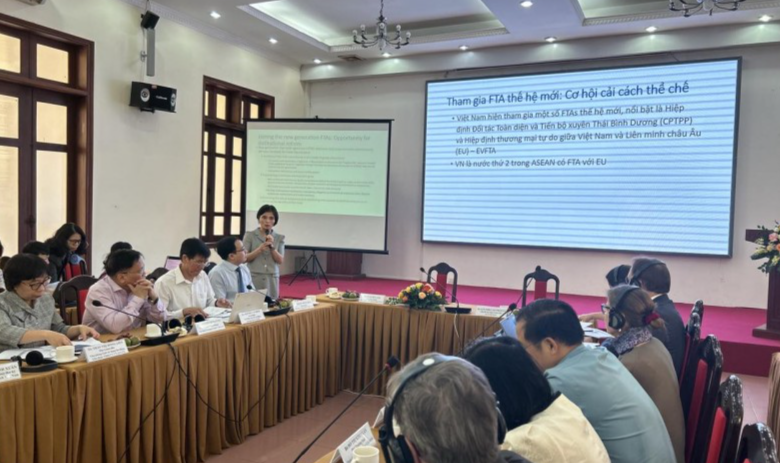Tổng số bài đăng 444.
Speaking at the International Labour Standards Workshop: Opportunities and challenges for Viet Nam's enterprises and export supply chains organized by the Central Institute for Economic Management (Ministry of Planning and Investment) in collaboration with the International Labour Organization (ILO) in Viet Nam on 17/10, In Hanoi, Mr. Dang Duc Anh – Deputy Director of the Central Institute for Economic Management said that up to now, Vietnam has participated in and is negotiating 17 free trade agreements (FTAs), of which 4 agreements contain labor commitments and are classified as "new generation", including: Agreement with the Eurasian Economic Union (VN-EAEU), Comprehensive and Progressive Agreement for Trans-Pacific Partnership (CPTPP), Agreement with the European Union (EVFTA) and Free Trade Agreement with the United Kingdom (UKVFTA).

Vietnam has participated in and is negotiating 17 free trade agreements
Especially, with the signing and implementation of CPTPP and EVFTA through many years of negotiations, Vietnam has basically accomplished the most important objectives in the Free Trade Agreement Negotiation Strategy for the period 2010-2020. In the context of the global economy being heavily affected by the trade war and the Covid-19 pandemic, international economic integration has contributed to putting Vietnam in a small group of economies that succeeded in maintaining positive growth.
According to Mr. Dang Duc Anh, in 2022, Vietnam's exports will reach 371.3 billion USD, up 10.5% compared to 2021, including an important contribution of trade with markets in new-generation FTAs.
The implemented FTAs allow Vietnam's exports to enjoy preferential tax rates when accessing markets in more than 50 countries, including most of the largest trading partners, accounting for over 70% of total exports. In particular, CPTPP and EVFTA agreements are considered as new-generation FTAs, in line with the development trend of modern trade.
"The 'new' nature of these agreements includes a high degree of liberalization for trade and investment, advanced trade rules, and non-traditional commitments. As a result, these FTAs not only open up potential trade opportunities with developed economies but also make an important contribution to promoting the process of institutional reform, completing the legal framework and enforcement of trade and investment of Vietnam", Mr. Dang Duc Anh affirmed.









